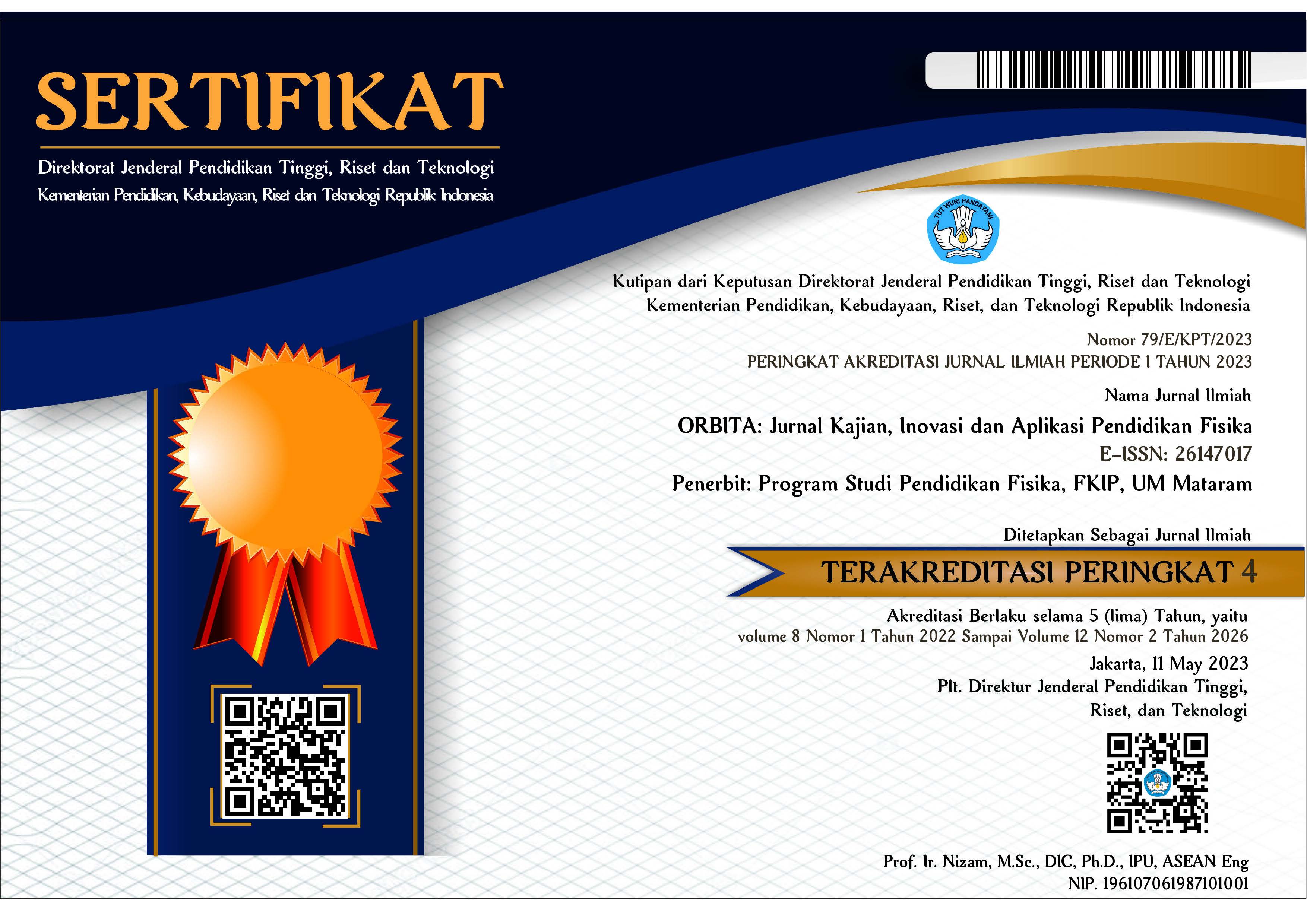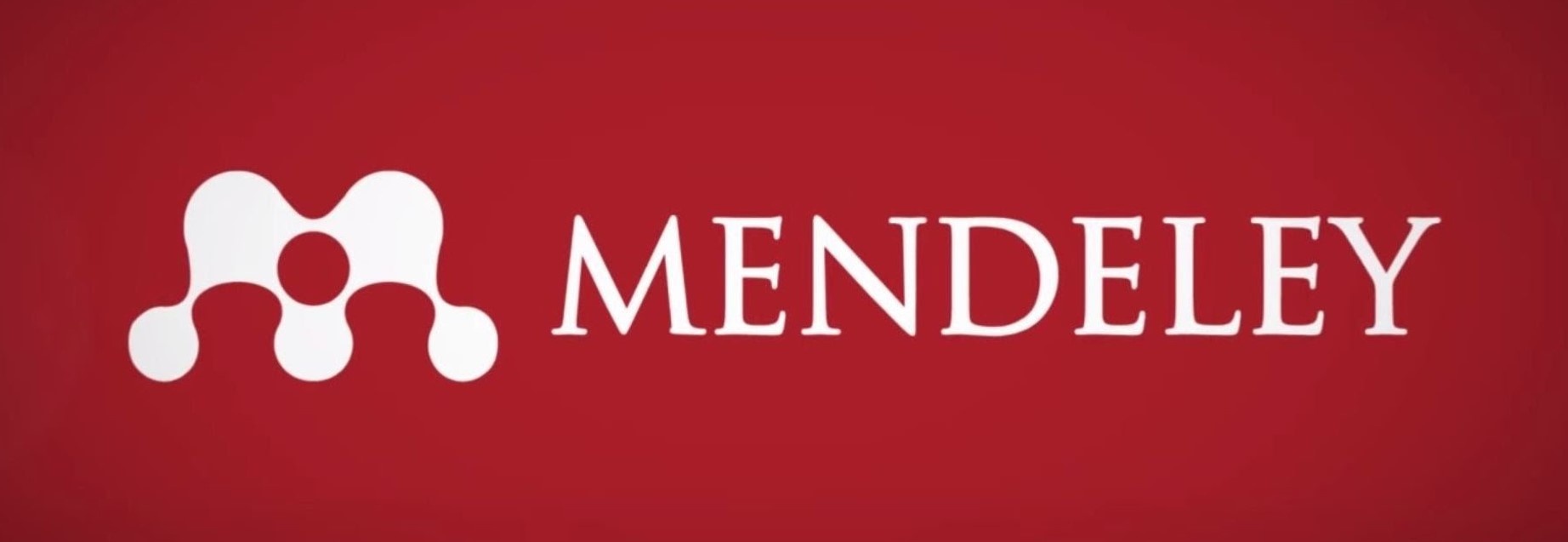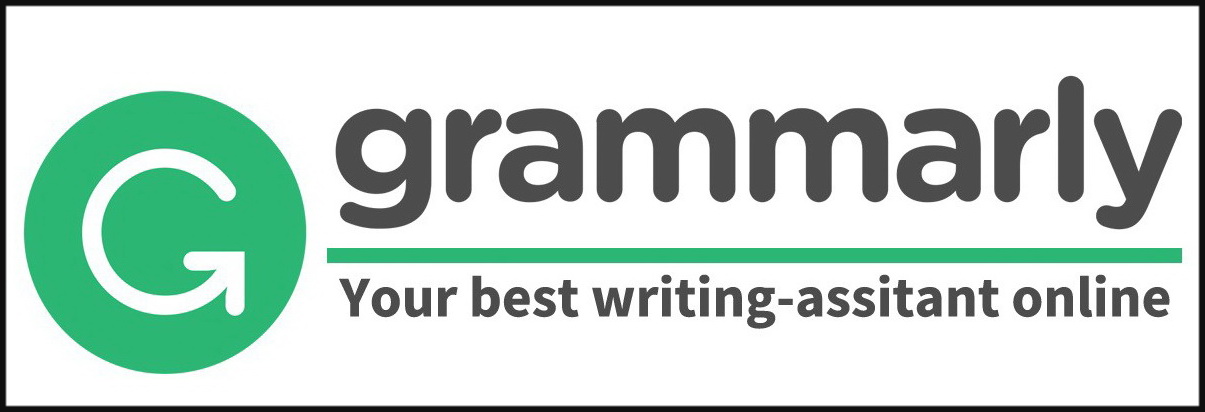PENGEMBANGAN E-MODUL FISIKA BERBANTUAN WHATSAPP SEBAGAI ALTERNATIF PEMEBALAJARAN DIMASA PEMDEMI COVID 19
Abstract
ABSTRAK
Penelitian ini bertujuan untuk mengembangkan media pembelajaran fisika berupa e–modul berbantuan whatsapp sebagai alternatif pembelajaran di masa pendemi covid 19 yang memenuhi indikator valid, praktis, dan efektif. Jenis penelitian ini adalah R&D, dengan pendekatan four D. Tahapan pengembangan terdiri dari tahap pendefinisian, perancangan, pengembangan, dan diseminasi terbatas. Subjek penelitian ini terdiri dari 3 orang validator dan 23 orang mahasiswa Prodi Pendidikan Fisika IKIP PGRI Pontianak yang mengambil mata kuliah Fisika Inti tahun ajaran 2019/2020. Penentuan kriteria kevalidan menggunakan uji indeks Aiken V. Hasil penelitian ini menunjukkan bahwa kriteria kevalidan komponen penyajian e-modul, kelayakan isi dan kebahasaan modul telah memenuhi kriteria validitas tinggi dengan rata-rata indeks V = 0,9, sehingga secara keseluruhan disimpulkan bahwa media pembelajaran fisika berupa e–modul berbantuan whatsapp sebagai alternatif pembelajaran di masa pendemi covid 19 yang memenuhi indikator valid telah memenuhi kriteria valid dengan kategori validitas tinggi. Tingkat kepraktisan e-modul menunjukkan bahwa 56,52% dari jumlah keseluruhan mahasiswa memberikan respon sangat positif terhadap modul dan 65,22% mahasiswa sangat aktif saat menggunakan e-modul, sehingga e-modul yang dikembangkan dinyatakan praktis. Tingkat keefektifan modul menunjukkan bahwa 100% dari mahasiswa memiliki nilai hasil belajar lebih tinggi dari nilai kelulusan (60) setelah menggunakan e-modul, sehingga dapat disimpulkan bahwa e-modul telah memenuhi kriteria efektif.
Kata kunci: e-modul; whatsapp; covid 19.
ABSTRACT
This study aims to develop physics learning media in the form of e-modules assisted by WhatsApp as an alternative to learning during the Covid 19 pandemic that meets valid, practical, and effective indicators. This type of research is R&D, with a four D approach. The stages of development consist of defining, designing, developing, and limited dissemination. The subjects of this study consisted of 3 validators and 23 students of the Physics Education Study Program of the IKIP PGRI Pontianak who took Core Physics courses for the 2019/2020 school year. The determination of the validity criteria used the Aiken V index test. The results of this study indicate that the criteria for the validity of the e-module presentation components, the feasibility of the content and language of the module have met the high validity criteria with an average index of V = 0.9, so that overall it is concluded that the learning media Physics in the form of e-module assisted by WhatsApp as an alternative to learning during the Covid 19 epidemic that meets valid indicators has met valid criteria with high validity categories. The practicality level of the e-module shows that 56.52% of the total number of students give a very positive response to the module and 65.22% of students are very active when using e-modules, so that the e-modules developed are declared practical. The level of effectiveness of the module shows that 100% of students have a learning result score higher than the passing score (60) after using e-module, so it can be concluded that the e-module has met the criteria for being effective.
Keywords: e-modul; whatsapp; covid 19.
Keywords
Full Text:
PDFReferences
Alimir. (2015). “20 Manfaat Pendidikan Bagi Masayarakt.”
Arifin, Z. (2012). Evaluasi Pembelajaran (1st ed.). Jakarta: Direktorat Jenderal Pendidikan Islam Kementrian Agama RI.
Bansal, T., and Joshi, D. (2014). ). A study of students’ experiences of mobile learning. Global Journal of Human-Social Science, 14(4), 27–33.
Herliandry, L. D., Nurhasanah, N., Suban, M. E., & Kuswanto, H. (2020). Pembelajaran Pada Masa Pandemi Covid-19. JTP - Jurnal Teknologi Pendidikan, 22(1), 65–70. https://doi.org/10.21009/jtp.v22i1.15286
Ikbal, M. S., & Khuzaimah, A. U. (2020). Pengembangan Modul Pembelajaran IPA Fisika Berbasis Pop-up Book. Jurnal Pendidikan Fisika, Volume 8(No 1), 53–60.
Khusaini. (2014). Optimalisasi Penggunaan WhatsApp dalam Perkuliahan Penilaian Pendidikan Fisika. Jurnal Riset Dan Kajian Pendidikan Fisika, 1(2).
Kind, T., & Evans, Y. (2015). Social media for lifelong learning. International Review of Psychiatry, 27(2), 124–132.
Miarso, Y. H. (2009). Menyemai Benih Teknologi Pendidikan (4th ed.). Jakarta: Predana Media Group.
Retnawati, H. (2016). Validitas Reliabilitas Dan Karakteristik Butir (Panduan untuk Peneliti, Mahasiswa, dan Psikometrian) (2nd ed.). Yogyakarta: Parama Publishing. Indonesia (JSII),.
Saraswati, D. L. (2019). Kelayakan Mobile Learning Media pada Materi Fisika Inti dan Radioaktivitas. Journal of Teaching and Learning Physics, 4(2), 25–34.
Somantri, S. (2019). Pemanfaatan Whatsapp sebagai Upaya Meningkatkan Hasil Belajar Peserta Didik pada Mata Pelajaran Fisika. UPEJ Unnes Physics Education Journal, 8(1), 28–33. https://doi.org/10.15294/upej.v8i1.29505
Tikno, T. (2017). Measuring performance of Facebook advertising based on media used: a case study on online shops in Indonesia. Procedia Computer Science, 111, 105–112.
DOI: https://doi.org/10.31764/orbita.v6i2.3130
Refbacks
- There are currently no refbacks.

This work is licensed under a Creative Commons Attribution-ShareAlike 4.0 International License.
______________________________________________________
ORBITA: Jurnal Pendidikan dan Ilmu Fisika
p-ISSN 2460-9587 || e-ISSN 2614-7017
This work is licensed under a Creative Commons Attribution-ShareAlike 4.0 International License.
EDITORIAL OFFICE:


























